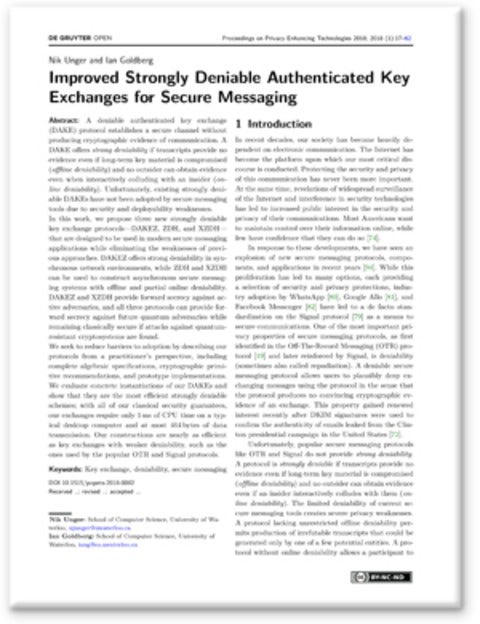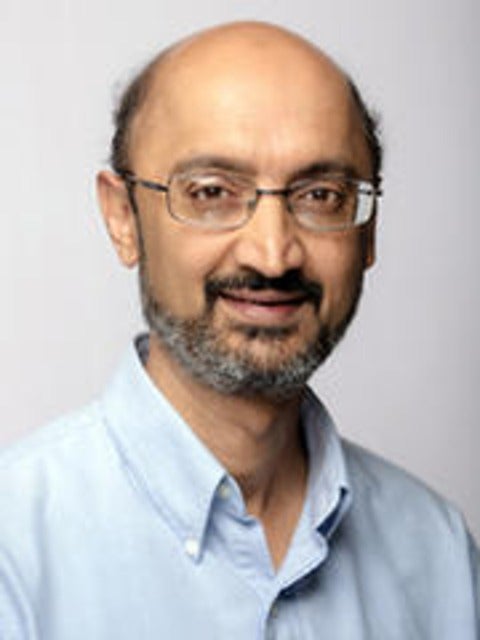Tuesday, February 20, 2018
Developing protocols for better Off-The-Record encryption
Cryptography done right has become increasingly important as the impacts of poor implementations are being felt by journalists, whistleblowers and political activists around the world.

